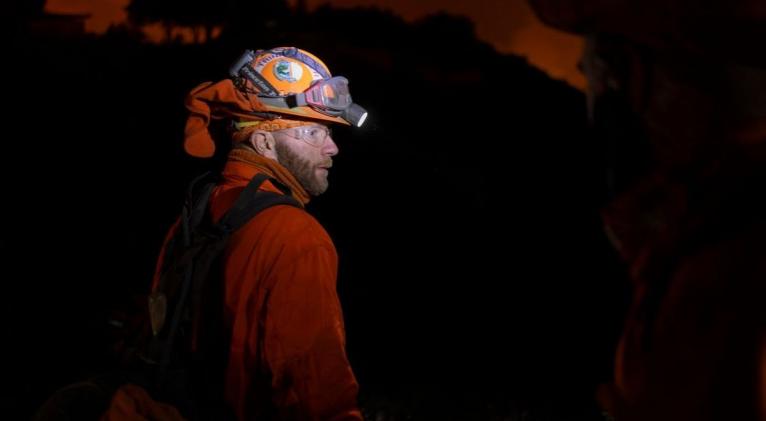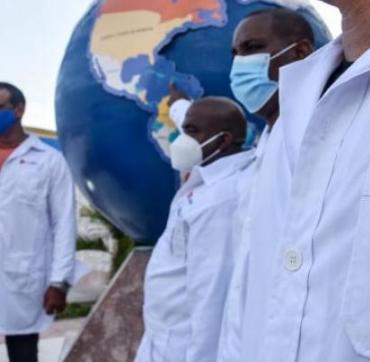Olympic flame vs. wildfires: Can LA28 resist?
especiales

Los Angeles is far from its best days, standing at the epicentre of a catastrophe that, in just a week, has devoured 24 lives, devastated 160 square kilometers, and destroyed 10,000 structures. Now, another raging inferno brews as preparations for the 2028 Olympics hang by a thread.
The wildfires that ravaged Los Angeles during the last week haven’t just turned the skies an apocalyptic shade of red—they’ve thrown the future of the next edition of the Olympic Games into serious doubt. With fatality figures that alarm even the most skeptical, the land reduced to ash, and reconstruction costs estimated at an unfathomable $135 billion (€124 billion), the city’s ability to host the world’s largest sporting event is now subjected to thorough investigation.
Although none of the 80 planned Olympic venues have been directly damaged by the flames, the fire’s alarming proximity to key locations—such as the Riviera Country Club, set to host Olympic golf, and the Sepulveda Basin Recreation Area, future home to archery, BMX, and skateboarding events—exposed the vulnerability of crucial sites. "The situation is undeniably dire," warns Simon Chadwick, professor of sport and geopolitical economy at Skema Business School, who suggests Los Angeles 2028 could risk becoming "an uninsurable mega-event."
Indeed, the question haunting the minds of LA28 organisers is whether Los Angeles can recover in time to deliver a Games worthy of the Olympic legacy. The human cost is already harrowing, with families grieving irreplaceable losses and entire communities uprooted. Thousands of homes, businesses, farmlands, and livelihoods have been wiped out, leaving a scar on the landscape as deep as it is emotional.
Fear: torn between hope and doubt
While hope lingers and many are already looking to the future, the current numbers paint a sobering picture. The colossal task of rebuilding—not just infrastructure but confidence—hangs heavily over the city, and the road ahead is fraught with uncertainty. Los Angeles now stands at a crossroads: can it rise, phoenix-like, from the devastation and prove that it’s still the perfect stage for the Olympic flame? Or will these fires leave a mark that even the Games cannot erase? Only time will tell if resilience and innovation can transform disaster into triumph.
The Californian jewel hosted the Olympic Games twice before, in 1932 and 1984, but now it finds itself navigating uncharted waters. "We must ask if these disasters could happen again, even during the Games," warns Chadwick, highlighting the potential for insurance costs to skyrocket. A report by global financial firm JP Morgan echoes this concern, estimating insured losses from the Palisades wildfire at approximately $10 billion (€9.2 billion).
In fact, some of the largest insurers in the United States, including State Farm, AIG, and Allstate, have already ceased issuing homeowner policies in California due to the escalating wildfire threat. With nature's fury seasons in California growing more severe, everything from venue safety to air quality is at risk. Enter artificial intelligence: cutting-edge AI is now being deployed to predict outcomes and devise strategies to combat these challenges.
An event in jeopardy because of climate change?
As some experts advocate for drastic measures, such as relocating the Games to Paris—where 2024 venues will remain intact—others view local resilience as a critical asset. "The assumption that we should cancel the Olympics isn’t one I accept," asserts Bill Deverell, a historian at the University of Southern California. For him, the current crises represent a chance to learn and mitigate future risks.
Nonetheless, the prospect of relocating the Games stirs tensions as a looming question mark hovers over the fate of the Los Angeles 2028 Olympics and Paralympics. Mark Dyerson, a historian from Penn State, suggests that in the event of a major disaster, competitions could be redistributed to nearby areas. "It’s unfortunate, but I’m certain the IOC has a contingency committee for such scenarios," he comments.
California’s climate challenges are nothing new. The infamous Santa Ana winds and prolonged droughts have intensified the frequency and ferocity of wildfires in the region. Historical data, however, offers some respite: July, the month when the Games are scheduled, doesn’t typically coincide with the peak season for these destructive winds. Even so, the effects of climate change are undeniable. Experts point out that the insurance industry is facing uncharted hurdles. "The number of companies willing to take on risk has plummeted," notes an analysis by The iPaper.
Beyond statistics, the human cost of the fire is shattering. Entire families have been left homeless, including former Olympic champion Gary Hall Jr., who lost not only his house but also his medals. IOC President Thomas Bach confirmed that his medals will be replaced, yet this tragedy underscores the emotional toll of the blazing flames. Meanwhile, Los Angeles’ air quality has reached hazardous levels, adding a social dimension to the debate surrounding the Games’ feasibility.
"An opportunity to act collaboratively"
The LA 2028 Organising Committee responded with optimism, expressing gratitude to emergency services and highlighting the city’s resilience. Yet criticism has been swift. Conservative commentator Charlie Kirk lambasted the local government, calling for the Games to be relocated to "safer" cities like Dallas or Miami.
Despite the obstacles, Los Angeles remains a beacon of Olympic spirit. Its legacy as a successful host, coupled with a $6.8 billion (€6.2 billion) investment, underscores its capacity to overcome adversity. California Governor Gavin Newsom magnifies that upcoming events like the 2026 FIFA World Cup and the 2027 Super Bowl further cement the city’s standing as a global sports hub. "This isn’t just a challenge; it’s an opportunity to act collaboratively," Newsom states, stressing the importance of swift and effective solutions.
With the countdown to 2028 underway, Los Angeles faces the delicate task of balancing post-fire recovery, climate risk mitigation, and the organisation of a global event symbolising unity and resilience. The world is watching as this metropolis—scarred by fire yet fuelled by hope—redefines its Olympic future in an era of mounting uncertainty. The ultimate test will not just be the Games’ opening ceremony but proving that even in the face of adversity, Los Angeles can blossom from the ruins...














Add new comment